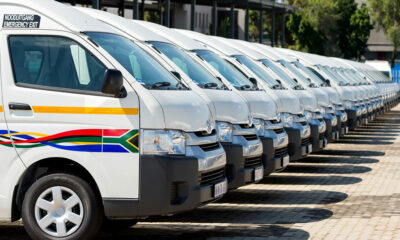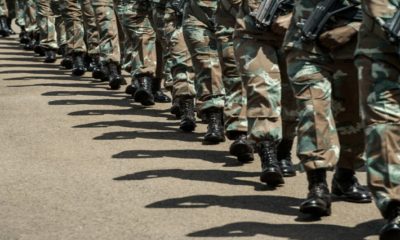News
KZN’s Crime Battle Stretched Thin: Just 9,000 Officers on Duty for 12 Million People

KZN’s Crime Battle Stretched Thin: Just 9,000 Officers on Duty for 12 Million People
The fight against crime in KwaZulu-Natal is under immense strain, with a recent meeting between the South African Police Service (SAPS) and Parliament revealing a crisis that goes far beyond headlines.
In a province of 12.5 million people, just 23,000 police officers are employed — and because they work in shifts, only around 9,000 are on duty at any given time. For many communities already grappling with violent crime, the numbers paint a worrying picture.
A Meeting That Pulled No Punches
On Monday, members of the National Council of Provinces (NCOP) sat down with SAPS provincial commissioner Lieutenant-General Nhlanhla Mkhwanazi and his team in Durban. The aim was clear: to get an unfiltered view of the challenges facing policing in KZN.
What emerged was a litany of operational bottlenecks, from crippling staff shortages to an over-centralised system where even the most basic decisions require Pretoria’s sign-off.
Cars Gathering Dust, Not Patrolling Streets
Perhaps the most frustrating revelation was that over 1,400 police vehicles are sitting idle in garages — some for months — awaiting approval from head office to be repaired.
Many of these faults are minor, like a faulty indicator or worn tyres, yet bureaucracy has kept the cars off the road while crime continues to soar.
A Recruitment Crisis in the Making
The province’s recruitment pipeline is not keeping pace with the number of officers leaving the force. In just a few months, over 1,000 members have retired or resigned. While SAPS job postings attract millions of applicants, only around 5,000 are appointed nationwide each year.
As NCOP provincial whip Mzamo Billy warned, “We are quickly heading to a point of no return.”
Private Security on the Rise
One of the more sobering takeaways is the growing divide between those who can afford private protection and those who cannot. KZN now has close to 2,000 registered security companies. This trend suggests that wealthier communities will increasingly rely on private patrols, while poorer neighbourhoods remain vulnerable.
The Bigger Picture
The meeting also made it clear that KZN’s challenges are not unique — provinces like Limpopo face similar policing pressures. The NCOP has pledged to escalate these issues to Parliament, focusing on policy shifts such as devolving certain policing powers to the provinces.
For many in KZN, however, the crisis is already being felt. The reality is stark: fewer officers on the ground means slower response times, overworked personnel, and a greater reliance on community initiatives to keep streets safe.
Bottom line:
Unless recruitment speeds up, bureaucracy is trimmed, and resources are decentralised, KwaZulu-Natal risks slipping further into a two-tier security system — one for the wealthy, and one for everyone else.
Source:IOL
Follow Joburg ETC on Facebook, Twitter , TikTok and Instagram
For more News in Johannesburg, visit joburgetc.com



























